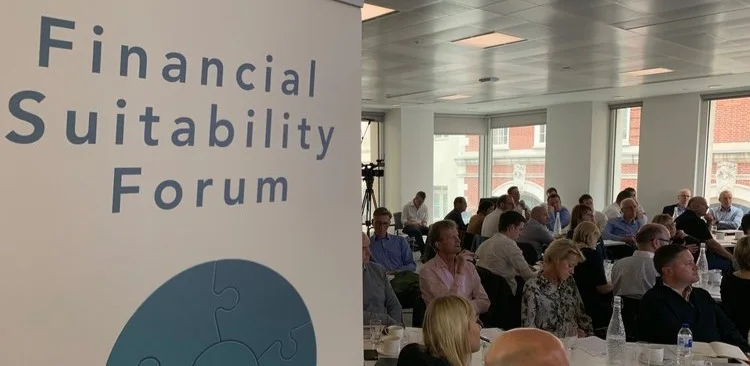How can you provide "Suitable Advice" if you don't know where your clients live?
Danielle Higgins 10th December, 2019

Convened by Paul Resnik, the “Financial Suitability Forum” was a highly engaging event. The aim of the forum is to represent an engaged community of financial planners and those involved in the industry, all seeking to be the very best they can be at delivering great services to their clients, with the focus centred around the principle of Suitability - which I am learning is a highly complex area.
In the sessions last week, we heard from leading expert Martin Turner. Martin has developed a tool which allows advisors to demonstrate what the impact of a macro economic shock would do to a particular investment, allowing advisors to demonstrate not just what has happened in the past, but what could happen in the future to funds, if certain events were to materialise.
Bahar Ghezelayagh also gave a talk on how human behaviour can fail to correctly assess risk and how this all links back to planning, advice and ensuring “informed consent” which is another important principal of Suitability.
My interest in this area comes from the perspective of “Maintaining Suitability” which is another of the five key components.
At The Tracing Group, we actively work with financial service providers and pension schemes who want to re-engage with their clients when they have lost contact. We also work to identify the legal heirs or administrations of the estate in the case when the original client has sadly passed away.
The over-riding feeling of the session was that most financial planners (or certainly the conscientious group involved in the financial suitability forum), were highly engaged with their client base and deeply understand their individual client’s goals, personality and circumstances, but I was left thinking, what about the providers who won’t necessarily have this deep rooted connection with their clients or the firms that have taken on the huge client books of others? Will they even know whether their customers are all alive? When was the last time they communicated with their client and received a response? Do they definitely know that their client’s haven’t moved? How can they be sure they are delivering a tailored financial strategy that “fits” the person and therefore answering the question on Suitability, if they are not sure when they last had any proper engagement?
We know from our experience in this industry, that “goneaway” customers do occur and they occur in much larger proportions than clients often think. When people move, they will not always tell all financial service providers that they have moved. We also know that sometimes assets are missed during estate distribution, and it is not always the case that financial service providers are told when people die, so fees could still be charged or accounts still held.
Where customers are found to be “goneaway” or deceased, is the process of assessing the quality of customer data and proactive tracing of customers something that should form part of this holistic approach to Suitability? I’m convinced that it would serve as an enabler for providers to demonstrate how they are genuinely delivering a great service, whilst avoiding the risks attached to remaining passive on this – the case of AMP in Australia may be a reason alone to act.
I’m interested to know what the industry thinks?
Danielle Higgins, Managing Director, The Tracing Group